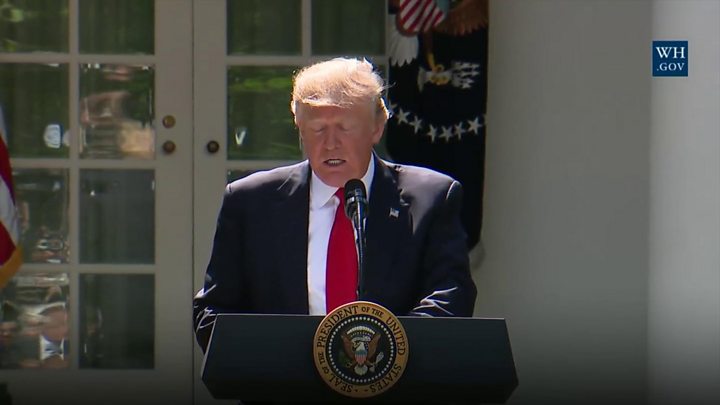- Joined
- Apr 14, 2011
- Messages
- 20,243
- Points
- 113
H-1B Petition Denials Skyrocketing in First Quarter 2019
Nick KolakowskiApril 22, 20195 min read
The rate of denials for new H-1B petitions rose in the first quarter of fiscal year 2019, according to new data from the National Foundation for American Policy (NFAP).
Some 32 percent of petitions for initial employment were denied, based on NFAP’s analysis of U.S. Citizenship and Immigration Services (USCIS) data. That’s a remarkable increase from 2018, when 24 percent were denied, and 2015, when only 6 percent were denied.
That accelerated rate also applies to petitions for continuing employment, some 18 percent of which were denied in the first quarter of fiscal year 2019. “If the goal of the Trump administration is to make it much more difficult for well-educated foreign nationals to work in America in technical fields, then USCIS is accomplishing that goal,” the NFAP wrote in a statement accompanying the data (PDF). “Whether the actions of USCIS are serving the best interests of the United States is a question that will remain open for debate.”
Moreover, these denials come despite no sweeping legal overhaul of the H-1B system. “The rise in the denial rate for continuing employment, where existing H-1B workers whose petitions have been approved before, show that adjudicators are applying a new standard to people whose petitions have already been approved before,” William Stock, a founding member of Klasko Immigration Law Partners, LLP, told NFAP.
The data from NFAP aligns with general trends reported directly by USCIS. For example, the agency’s recent data showed that approvals of completed H-1B applications hit with an RFE (Request for Evidence) declined noticeably year-over-year in the first quarter of 2019. Premium processing might have re-opened after a lengthy shutdown, in other words, but some companies are facing a heightened degree of additional scrutiny.
However, there’s a big change underway for the H-1B system, and it could radically affect the types of candidates who successfully land a visa. In the current system, applicants with advanced degrees enter a “master’s cap” pool of 20,000 visas; those who are rejected then enter the 65,000-visa “general pool,” which features applicants without advanced degrees. The revamped system will allow all applicants, including those with advanced degrees, to enter the “general pool,” and any who don’t land a visa during that first round can then end up in the “master’s cap” pool.
In theory, this gives applicants with advanced degrees two shots at landing a visa. But with USCIS clearly subjecting applications to far greater scrutiny, it’s an open question whether a revamped system will allow companies to secure all the visas they claim they need.
In the meantime,the cap for H-1B visas has been reached for fiscal year 2020. Even as USCIS tightens the system, that’s clearly not dissuading companies from attempting to secure as many visas as possible. If that wasn’t enough, these firms are providing H-1B candidates with all kinds of perks, including company-paid housing, funded relocation, travel expenses, and sponsorship for green cards.
“Leading companies think about immigration strategically. For example—companies that offer foreign nationals benefits that allow them to remain in the U.S. longer are finding more success in retaining foreign talent,” Richard Burke, CEO of Envoy Global, wrote in a recent statement. “With heightened political scrutiny comes heightened anxiety among foreign nationals looking to work in the U.S. Companies that are able to provide their employees peace of mind by offering them a clear path to a permanent green card are getting ahead of the competition in retaining the best talent.”
But that idea is enraging to critics of the H-1B system, who say that companies abuse the visas in order to secure cheaper labor from overseas. H-1B holders at consultancy firms (which aggressively petition for the visas) are often paid less than H-1B holders at tech firms such as Google and Apple. While some studies argue that H-1B use translates into a positive effect for company productivity, it’s certain the visas will remain controversial for some time to come, revamps or no.
Nick KolakowskiApril 22, 20195 min read
The rate of denials for new H-1B petitions rose in the first quarter of fiscal year 2019, according to new data from the National Foundation for American Policy (NFAP).
Some 32 percent of petitions for initial employment were denied, based on NFAP’s analysis of U.S. Citizenship and Immigration Services (USCIS) data. That’s a remarkable increase from 2018, when 24 percent were denied, and 2015, when only 6 percent were denied.
That accelerated rate also applies to petitions for continuing employment, some 18 percent of which were denied in the first quarter of fiscal year 2019. “If the goal of the Trump administration is to make it much more difficult for well-educated foreign nationals to work in America in technical fields, then USCIS is accomplishing that goal,” the NFAP wrote in a statement accompanying the data (PDF). “Whether the actions of USCIS are serving the best interests of the United States is a question that will remain open for debate.”
Moreover, these denials come despite no sweeping legal overhaul of the H-1B system. “The rise in the denial rate for continuing employment, where existing H-1B workers whose petitions have been approved before, show that adjudicators are applying a new standard to people whose petitions have already been approved before,” William Stock, a founding member of Klasko Immigration Law Partners, LLP, told NFAP.
The data from NFAP aligns with general trends reported directly by USCIS. For example, the agency’s recent data showed that approvals of completed H-1B applications hit with an RFE (Request for Evidence) declined noticeably year-over-year in the first quarter of 2019. Premium processing might have re-opened after a lengthy shutdown, in other words, but some companies are facing a heightened degree of additional scrutiny.
However, there’s a big change underway for the H-1B system, and it could radically affect the types of candidates who successfully land a visa. In the current system, applicants with advanced degrees enter a “master’s cap” pool of 20,000 visas; those who are rejected then enter the 65,000-visa “general pool,” which features applicants without advanced degrees. The revamped system will allow all applicants, including those with advanced degrees, to enter the “general pool,” and any who don’t land a visa during that first round can then end up in the “master’s cap” pool.
In theory, this gives applicants with advanced degrees two shots at landing a visa. But with USCIS clearly subjecting applications to far greater scrutiny, it’s an open question whether a revamped system will allow companies to secure all the visas they claim they need.
In the meantime,the cap for H-1B visas has been reached for fiscal year 2020. Even as USCIS tightens the system, that’s clearly not dissuading companies from attempting to secure as many visas as possible. If that wasn’t enough, these firms are providing H-1B candidates with all kinds of perks, including company-paid housing, funded relocation, travel expenses, and sponsorship for green cards.
“Leading companies think about immigration strategically. For example—companies that offer foreign nationals benefits that allow them to remain in the U.S. longer are finding more success in retaining foreign talent,” Richard Burke, CEO of Envoy Global, wrote in a recent statement. “With heightened political scrutiny comes heightened anxiety among foreign nationals looking to work in the U.S. Companies that are able to provide their employees peace of mind by offering them a clear path to a permanent green card are getting ahead of the competition in retaining the best talent.”
But that idea is enraging to critics of the H-1B system, who say that companies abuse the visas in order to secure cheaper labor from overseas. H-1B holders at consultancy firms (which aggressively petition for the visas) are often paid less than H-1B holders at tech firms such as Google and Apple. While some studies argue that H-1B use translates into a positive effect for company productivity, it’s certain the visas will remain controversial for some time to come, revamps or no.


